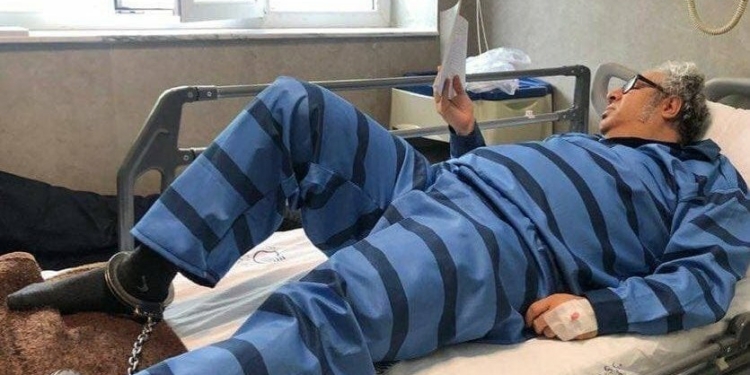Baktash Abtin, an imprisoned Iranian writer and filmmaker, has died in a Tehran hospital days after contracting COVID-19 in detention.
Mr Abtin was transferred to a hospital in the capital Tehran “but the treatment did not succeed and he died,” Al Jazeera network quoted the semi-official ISNA news agency as saying on Saturday.
The network reported that the 48-year-old was transferred to a hospital from the Evin Prison in mid-December and was placed in a medically induced coma a week before his death on Saturday in an attempt to help him recover from a severe case of the coronavirus.
Rights groups said authorities wasted time in offering him medical assistance when he first started showing symptoms of the disease more than a month ago.
“Our worst fears materialized today, as we mourn the utterly preventable death of Baktash Abtin,” PEN America, a human rights group, said in a statement.
“COVID is a natural killer, but Abtin’s death was aided and abetted by the Iranian government every step of the way.”
The organisation said Tehran’s Evin prison was a perpetual super-spreader event, making his unjust imprisonment since September of last year an effective death sentence.
“Abtin was denied medical treatment, his comorbidities were ignored and at times he was shackled to his bed,” the statement read.
On Friday, a day before his death, PEN America and 18 other non-governmental organisations had asked Supreme Leader Ayatollah Ali Khamenei to provide him with the best medical care, and to also refrain from summoning political prisoners to serve sentences while conditions in Iranian prisons are unsafe.
“Unfortunately, mistreatment of prisoners and denial of medical care is a systemic problem in Iranian prisons.
“…It is high time the Iranian state respects the free expression rights of Iranian writers, poets, and thinkers and recognises the rich traditions of Iran’s diverse literary community,” said the letter, posted on the website of Human Rights Watch.
Iran, however, denies any mistreatment saying Mr Abtin was granted furlough 35 days ago to be moved to a private hospital by his relatives, state media reported.
The organisation in charge of the prisons said the writer was serving a five-year sentence for “propaganda against national security”.
It said he was in the hospital for 35 days, during which time judicial officials decided to grant him temporary reprieve from prison, but the doctors were unable to save him.
Tens of thousands of posts about Abtin flooded Twitter and other social media platforms within hours of his death.
One image accompanying the many posts shows his ankles chained to a hospital bed as he is reading in a blue prison uniform. Another shows him in a coma, with breathing tubes and other equipment keeping him alive.
“Dying in chains in jail is brutal. Health complications are the major cause that the Iranian regime is using to let their most important & valuable opponents die,” said Mustafa, Albanian journalist, and activist.
“They deprive them of necessary care & use the sickness as a weapon. The inadvertent sickness becomes a mask for execution,” he posted on Twitter.










Discussion about this post